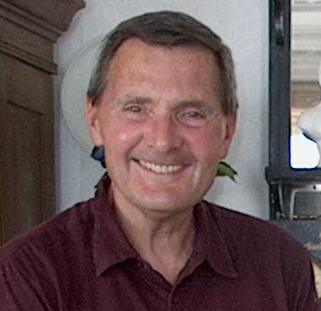Wolin points out that this form of democratic involvement was in fact characteristic of ordinary Americans throughout the 18th century, both before and after the Revolution. He cites:
" " the extraordinary political activities of working-class members, small farmers, women, slaves, and Indians during the period from roughly 1690 throughout most of the following century. [Those activities] took several forms: street protests and demonstrations, attacks on official residences, petitions, mass meetings, pamphlets, and newspaper articles. Virtually without exception the motive animating these actions was to protect or advance interests that the existing system ignored or exploited unfairly ". Democracy, in this early meaning, stood for a politics of redress, for common action to alleviate the sharp inequalities of wealth and power that enabled the more affluent and educated to monopolize governance. By it they sought to wrest a place in the political power structure and make it responsive to their own needs" [227].
Similar popular activism in the 19th and 20th centuries helped bring about further advances in equality and justice. These included federal offices for ordinary people under Andrew Jackson; the abolition of slavery; women's suffrage; trade unions; control of railroad rates; trust busting; civil rights for African Americans; ending the Vietnam War; women's rights and gay rights; environmental protection; and student power at universities.
ADVANCING POPULAR DEMOCRACY
BEGINS WITH A PERSONAL TRANSFORMATION.
In Wolin's view, acts of "fugitive democracy," by which the power of the people is mobilized to pursue solutions to real human problems, is a necessary counterbalance to the impersonal gamesmanship of the elite political order. He writes:
"Put starkly, the crucial political issue of our times concerns the incompatibility between the culture of everyday reality to which political democracy should be attuned and the culture of virtual reality on which corporate capitalism thrives. Despite claims that the opportunity to be stakeholders, or to form start-ups, to revel in consumer choices, or just to get rich demonstrates the democratic possibilities of capitalism, there is no political affinity [between political democracy and corporate capitalism], only a disjunction between democracy and a system that assumes inequality among investors and reproduces inequality as a matter of course, depends upon individual self-interest as an incentive, practices a politics of misrepresentation, and hence is inconsistent with such democratic values as sharing, caring, and preserving" [268-9].
What Wolin addresses here is at bottom a spiritual problem. How can the compassionate concern of ordinary people over the exploitation and unmet needs of their fellow humans find a way to effective political expression, in the face of an amoral corporate state geared to relentless pursuit of ever-increasing profits, power, and control?
For Wolin, popular activism seems the only choice in our day for achieving meaningful change, given the unresponsiveness of our managed democracy. He believes, however, that participants in such a movement must first undergo a personal transformation. "Democratization is not about being "left alone,'" he notes, "but about becoming a self that sees the values of common involvements and endeavors and finds in them a source of self-fulfillment" [289]. Even at the level of one's own career, Wolin suggests, such a transformation might manifest itself in a commitment to be an ethical lawyer, or even an ethical MBA, putting caring for others ahead of personal ambition or careerism.
As a next step, Wolin proposes that those committed to a democratic revival start acting collectively by becoming involved in local politics and other forms of institutional decision-making. By doing so, he believes, ordinary people can help establish such participation as a social norm and open it up to increasing numbers of fellow citizens. Such openness will also serve to "chasten the actions of those entrusted with power, whether as council members, teachers, business-owners, police, or environmentalists" [289].
At the same time, local political activists should encourage formation of a counter-elite of public servants at the national level who will also work to defend democratic values. Already, Wolin points out, counter-elite Non-Governmental Organizations (NGOs) pursue valuable public-service goals at principally local levels. Such groups are important not only for the work they do, but because they exemplify for those in the corporate/state system the concrete and practical character of true democracy. By setting this example, Wolin says, the local counter-elites "can provide a crucial reality check on the conduct of national politics and governance, perhaps even inhibit the elite's temptation to foreign adventures" [291].
Summing Up.
In Democracy, Incorporated, Sheldon Wolin has drawn on his broad knowledge of American history, capitalism, culture and society, and his expertise in political theory, to argue persuasively that America has lost its way as a model of democratic support for its citizens and a beacon of hope for the world. Since this trend is systemic and not self-correcting, the people themselves must act as a redemptive counterforce. While the elite corporate state drives blindly on to the abstract ends of profit, expansion and exploitation, it is left to ordinary citizens to redress, or cause others to redress, the injustices or failures of existing political arrangements. Wolin would have us take seriously the counsel of none other than Barack Obama himself that good government is built from the bottom up, not from the top down.
Today, only the people themselves, like the fugitive
democrats throughout American history, can join together in unity of conscience
and force of numbers to pursue meaningful solutions to the real needs of the
human community. Let all of us who are
moved by the moral imperatives of the progressive vision go forward in the spirit
of Sheldon Wolin to gain the popular support we need to build a more peaceful
world and a more caring community at home.
(Note: You can view every article as one long page if you sign up as an Advocate Member, or higher).





